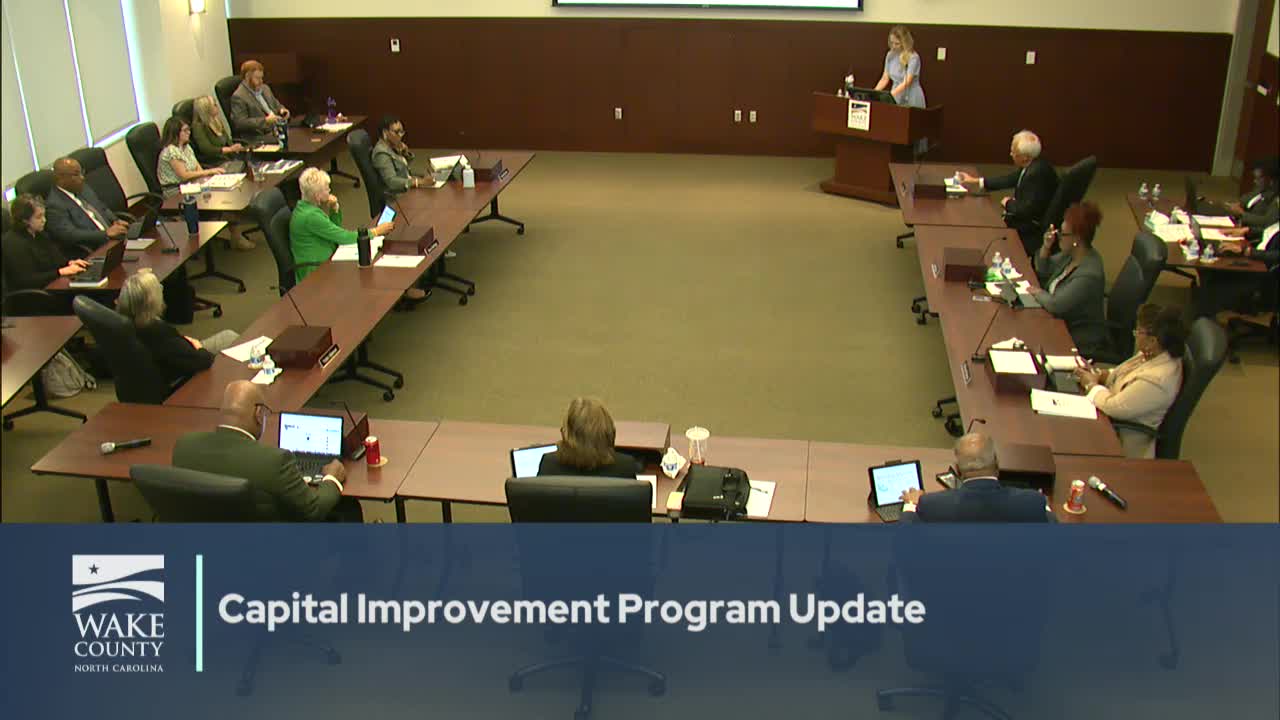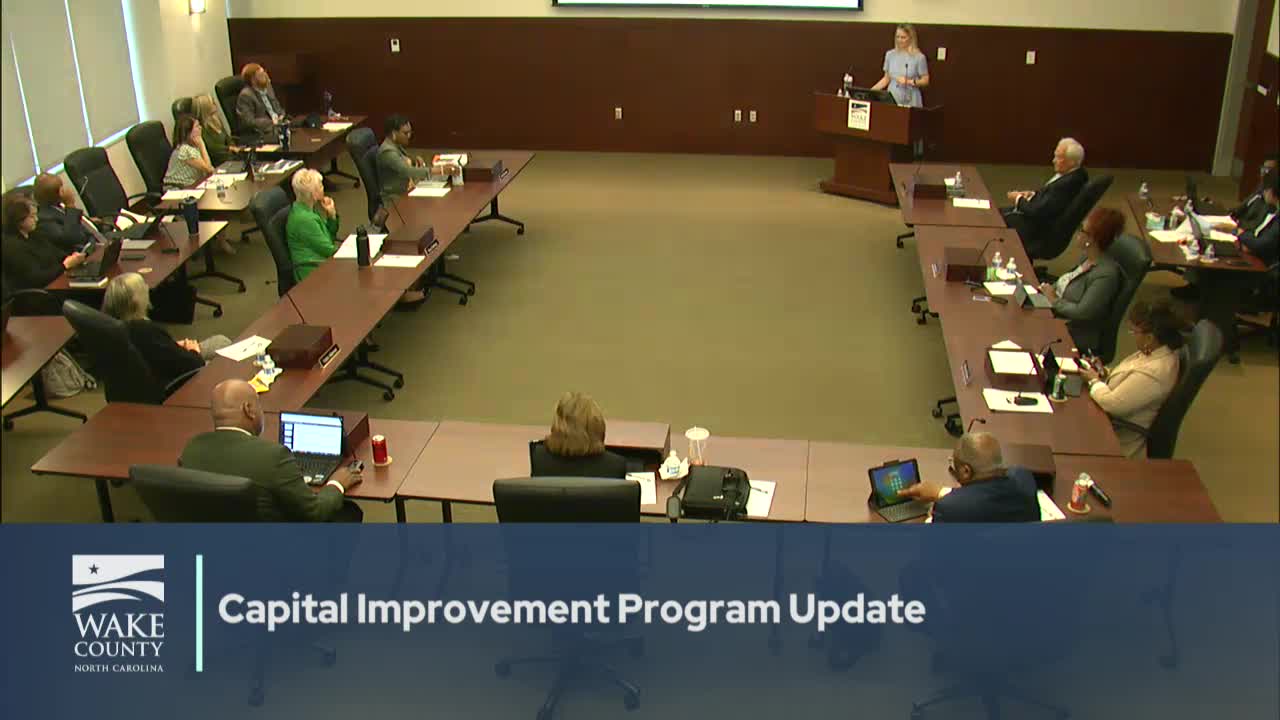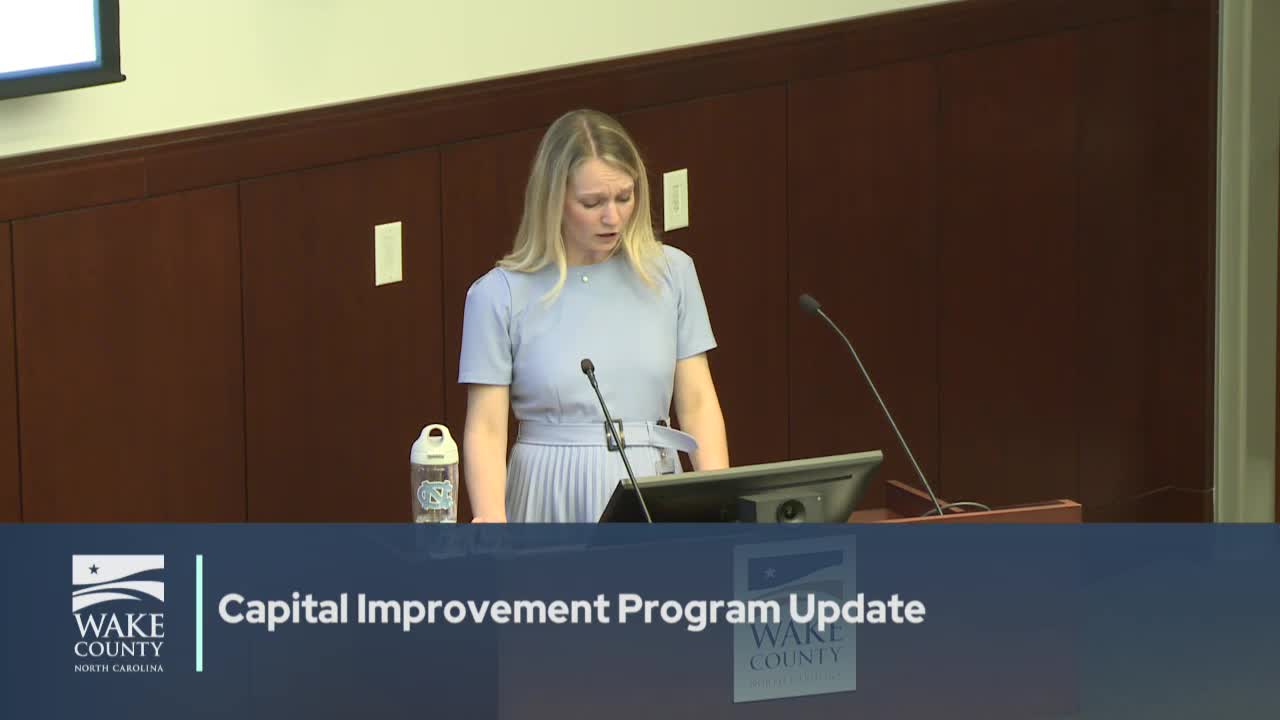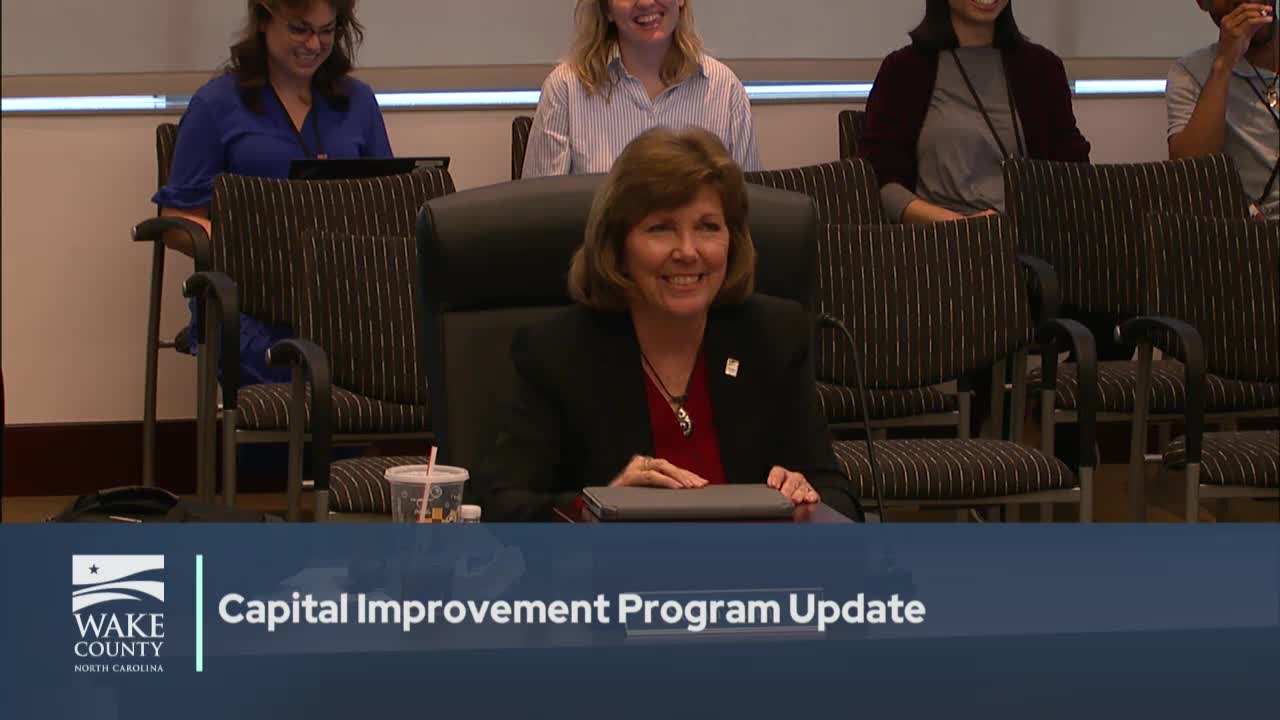Article not found
This article is no longer available. But don't worry—we've gathered other articles that discuss the same topic.

Wake County staff warn of construction cost pressures, long lead times and bond-market uncertainty as CIP is finalized

Wake County outlines housing, fire tax and special capital funds; asks for partner input on shelter, acquisition fund

Wake County, Wake Tech and school system present $3.3 billion seven-year capital request; November 2026 education bond planned

